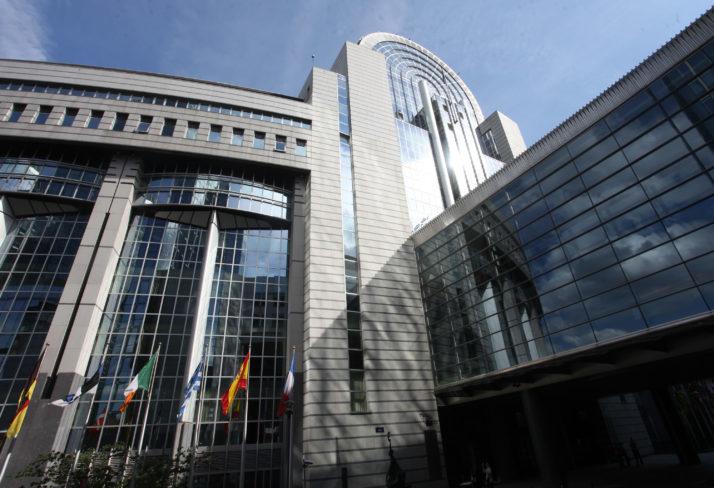EU Rejects Copyright Reform that Would Have Obstructed Content Sharing

Scientists, activists and tens of thousands of common people had written to the EU Parliament asking it to reject the proposal
The European Parliament on July 5 rejected a controversial proposal to reform copyright rules in order to protect the profits of media companies and publishers, at the cost of penalizing content sharing platforms. The proposal would have limited users' access to information and made the internet more vulnerable to censorship. The bill has been sent back for further discussion and all the members of parliament will be able to propose amendments.
With 318 votes against the adoption, 278 votes in favour and 31 abstentions, the European Parliament rejected The Directive on Copyright in the Digital Single Market, which was tabled after the European Council's Permanent Representatives Committee had agreed upon it on May 25, following which it was approved by the parliament's Legal Affairs Committee on June 20.
Since then, over 884,000 people signed a petition on change.org urging the EU Parliament to reject the proposal, which, if passed, would made it mandatory to possess a license in order to provide links to articles. It would also have made it illegal to use copyrighted text, clips or pictures, even for satirical purposes such as making memes.
Numerous academicians, activists, legal analysts and technical experts - including many of the pioneers of internet - had urged the parliament to reject the proposal. Aimed at updating the 2001 law governing copyrights in line with the current use of internet technology, the directive was met with strong opposition with two of its provisions - Article 11 and Article 13 - being subject to heavy criticism.
Article 11, dubbed 'link tax’ and ‘snippet tax’ by critics, aims at protecting the profit margins of media publishers - like news websites for example - by making it necessary for content sharing platforms to be licensed by them, in order show any part of their copyrighted articles, clips or pictures on their websites. The vagueness of the language used in the proposal allows everything from snippets and quotes to headlines and even links to be included under the licensing requirement.
“Uses of press publications by information society service providers can consist of the use of entire publications or articles but also of parts of press publications. Such uses of parts of press publications have also gained economic relevance,” the Directive says.
While giants such as Google and Facebook may be in a position to afford the required licenses, smaller platforms and start-ups aggregating news may not be able to do so, and will be forced to wind up their operations.
The non-profit Wikimedia foundation, which runs Wikipedia, noted in a statement, that “A new exclusive right allowing press publishers to restrict the use of news snippets will make it more difficult to access and share information about current events in the world, making it harder for Wikipedia contributors to find citations for articles online.”
The digital rights advocacy group, Electronic Frontier Foundation, warned that “news sites may seek to withhold linking licenses from critics who want to quote from them in order to analyze, correct and critique their articles, making it much harder for anyone else to figure out where the positions are in debates, especially years after the fact. This may not matter to people who only pay attention to news in the moment, but it's a blow to projects that seek to present and preserve long-term records of noteworthy controversies.”
Making an exception to the license requirement, the directive states that the use of parts of the content that are “insubstantial”, and “may not undermine the investments made by publishers.. in the production of content”, will not “fall within the scope of the rights provided for in this Directive”.
However, it was up to the 28 member states to determine what will be regarded as “insubstantial” in their respective countries. This may have left content-sharing platforms with 28 different laws to comply with across the EU.
“Instead of one Europe-wide law, we’d have 28, with the most extreme becoming the de-facto standard: To avoid being sued, international internet platforms would be motivated to comply with the strictest version implemented by any member state,” Member of European Parliament Julia Reda wrote.
Even more controversial than Article 11 was Article 13, which sought to make content sharing platforms responsible for ensuring that none of the material uploaded on their sites was in violation of the copyrights. Currently, according to the E-commerce Directive, the primary responsibility of avoiding copyright infringement rests on the users uploading the content, while the platforms themselves are only obliged to remove such content after an infringement is reported.
This shift in primary responsibility would require all “sites that allow users to post text, sounds, code, still or moving images, or other copyrighted works for public consumption.. to filter all their users' submissions against a database of copyrighted works. Sites will have to pay to license the technology to match submissions to the database, and to identify near matches as well as exact ones. Sites will be required to have a process to allow rightsholders to update this list with more copyrighted works,” Cory Doctorow, journalist and an advocate of liberalizing copyrights, warned.
Questioning the legality of this Article, the Max Planck Institute for Innovation and Competition pointed out that “obliging certain platforms to apply technology that identifies and filters all the data of each of its users before the upload on the publicly available services is contrary to Article 15 of the InfoSoc Directive as well as the European Charter of Fundamental Rights.”
The Wikimedia Foundation also criticized Article 13, stating, “The requirement for platforms to implement upload filters is a serious threat for freedom of expression and privacy. Our foundational vision depends on the free exchange of knowledge across the entirety of the web, and beyond the boundaries of the Wikimedia projects.”
Two days before the Parliament was set to vote on the proposal, Wikipedia in Italy, in protest, redirected all its pages to a statement warning about the the dangers of adopting the proposed reforms.
Google reportedly spent $36 million in lobbying the members of the parliament against Article 13.
Alerting the President of the European Parliament, Antonio Tajano, about the adverse impact of Article 13, a group of internet scientists - including one of the founders of the internet, Vint Cerf, and the inventor of the World Wide Web, Tim Berners Lee - wrote him a letter, pointing out that the costs it imposes on content sharing sites are formidable:
“[F]ar from only affecting large American Internet platforms (who can well afford the costs of compliance), the burden of Article 13 will fall most heavily on their competitors, including European startups and SMEs. The cost of putting in place the necessary automatic filtering technologies will be expensive and burdensome, and yet those technologies have still not developed to a point where their reliability can be guaranteed,” the letter read.
One of the most sophisticated and most expensive of such algorithms that can detect copyright infringements is the Content ID system used by Youtube, “which improperly flags legitimate works all the time, but still gets flack from entertainment companies for not doing more,” Doctorow noted.
This attempt to impose such harsh measures, compromising users' access to information in order to protect the copyrights of publishers and producers, was made three years after the EU, spending $400,000 on a study, concluded that even though “51 percent of adults and 71 percent minors in the EU have illegally downloaded or streamed any form of creative content, the results do not show robust statistical evidence of displacement of sales by online copyright infringements.. An exception is the displacement of recent top films... for every ten recent top films watched illegally, four fewer films are consumed legally. All in all, the estimated loss for recent top films is 5% of current sales volumes.”
Had the Article 13 of the directive “been in place when Internet’s core protocols and applications were developed, it is unlikely that it would exist today as we know it,” the letter from the scientists said.
Following the vote, it is now up to the lawmakers to pass amendments to it, and place the amended draft for a vote in the next session.
After the rejection, the website of a campaign organized against the proposal by a number of civil society organizations, including Creative Commons, Wikimedia, Electronic Frontier Foundation and Civil Liberties Union For Europe, now states:
“We have a 1st win! On 5 July, the European Parliament plenary voted against the mandate.. However, the battle to defeat the Article 13 Censorship Machine is far from over: it must now be won in the European Parliament plenary in September. The site will be rethought and rebuilt to support you in facing the next stage of the battle. This is not over and your efforts will continue to lead to a balanced & positive outcome!”
Get the latest reports & analysis with people's perspective on Protests, movements & deep analytical videos, discussions of the current affairs in your Telegram app. Subscribe to NewsClick's Telegram channel & get Real-Time updates on stories, as they get published on our website.
























